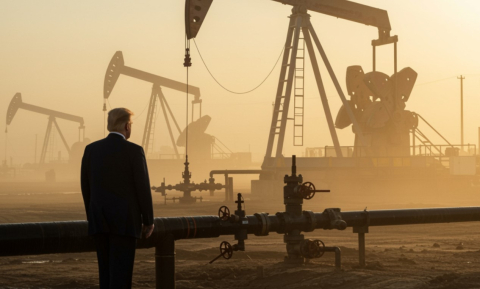Russia’s Asia Strategy: Bolstering the Eagle’s Eastern Wing

Among Russia’s strategic priorities, Asia traditionally played a secondary role compared to the West. In the mid-1990s, then Foreign Minister Yevgeny Primakov initiated a rapprochement with China and India. Then, in 2014, deteriorating relations between Russia and the West prompted Moscow to begin its “great pivot to the East”.
Russia’s “new” Asian policy must avoid two pitfalls: focusing excessively on China, and managing relations with the countries of the region in a strictly bilateral way. Bilateral relations, even with China, need to be parts of a whole, and closely coordinated with other parts. As part of a broader Asian-Pacific strategy, Moscow should seek to build a “Great Eurasia”. This requires an integrated approach to the region as a whole, and an overall approach that embraces geopolitical, geo-economic, military, informational and cultural dimensions.
Dmitri Trenin, director of the Carnegie Moscow Center, has been with the center since its inception. He chairs the center’s Research Council and its Foreign and Security Policy Program.

Available in:
Regions and themes
ISBN / ISSN
Share
Download the full analysis
This page contains only a summary of our work. If you would like to have access to all the information from our research on the subject, you can download the full version in PDF format.
Russia’s Asia Strategy: Bolstering the Eagle’s Eastern Wing
Related centers and programs
Discover our other research centers and programsFind out more
Discover all our analysesWar as Social Elevator: The Socioeconomic Impact of Russian Military Keynesianism
In order to finance its war effort, the Russian state has spent substantial sums of money and implemented a form of “military Keynesianism” that is transforming society at both the socioeconomic and cultural levels. This has partially rebalanced the wide disparities in wealth, levels of consumption, and social prestige in Russian society by granting significant financial and symbolic advantages to peripheral Russia, which has long been overlooked by the central government.
The Contradictory Impacts of Western Sanctions on Economic Relations between Russia and Sub-Saharan Africa
How does Russia maintain economic ties with Africa despite Western sanctions? An analysis of investments, trade, and the circumvention strategies deployed by Moscow.
The Caspian Sea as an Emerging Energy Hub : Potentials and Limitations
This report analyzes the prospects of the Caspian Sea region — and its key actors except for Russia and Iran — becoming an important energy hub serving the needs of the European Union (EU).
The European Union's Strategic Test in Georgia
The political crisis brewing in Georgia is of an existential nature for the country. What is at stake is Georgia's future as a democratic and sovereign European nation (EU).









